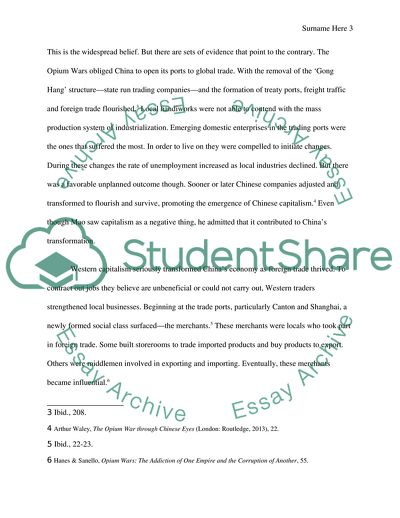Cite this document
(China After the Opium War: The Positive Outcomes of the Opium War Report Example | Topics and Well Written Essays - 3000 words, n.d.)
China After the Opium War: The Positive Outcomes of the Opium War Report Example | Topics and Well Written Essays - 3000 words. https://studentshare.org/history/1826307-the-influence-opium-war-to-china
China After the Opium War: The Positive Outcomes of the Opium War Report Example | Topics and Well Written Essays - 3000 words. https://studentshare.org/history/1826307-the-influence-opium-war-to-china
(China After the Opium War: The Positive Outcomes of the Opium War Report Example | Topics and Well Written Essays - 3000 Words)
China After the Opium War: The Positive Outcomes of the Opium War Report Example | Topics and Well Written Essays - 3000 Words. https://studentshare.org/history/1826307-the-influence-opium-war-to-china.
China After the Opium War: The Positive Outcomes of the Opium War Report Example | Topics and Well Written Essays - 3000 Words. https://studentshare.org/history/1826307-the-influence-opium-war-to-china.
“China After the Opium War: The Positive Outcomes of the Opium War Report Example | Topics and Well Written Essays - 3000 Words”. https://studentshare.org/history/1826307-the-influence-opium-war-to-china.


